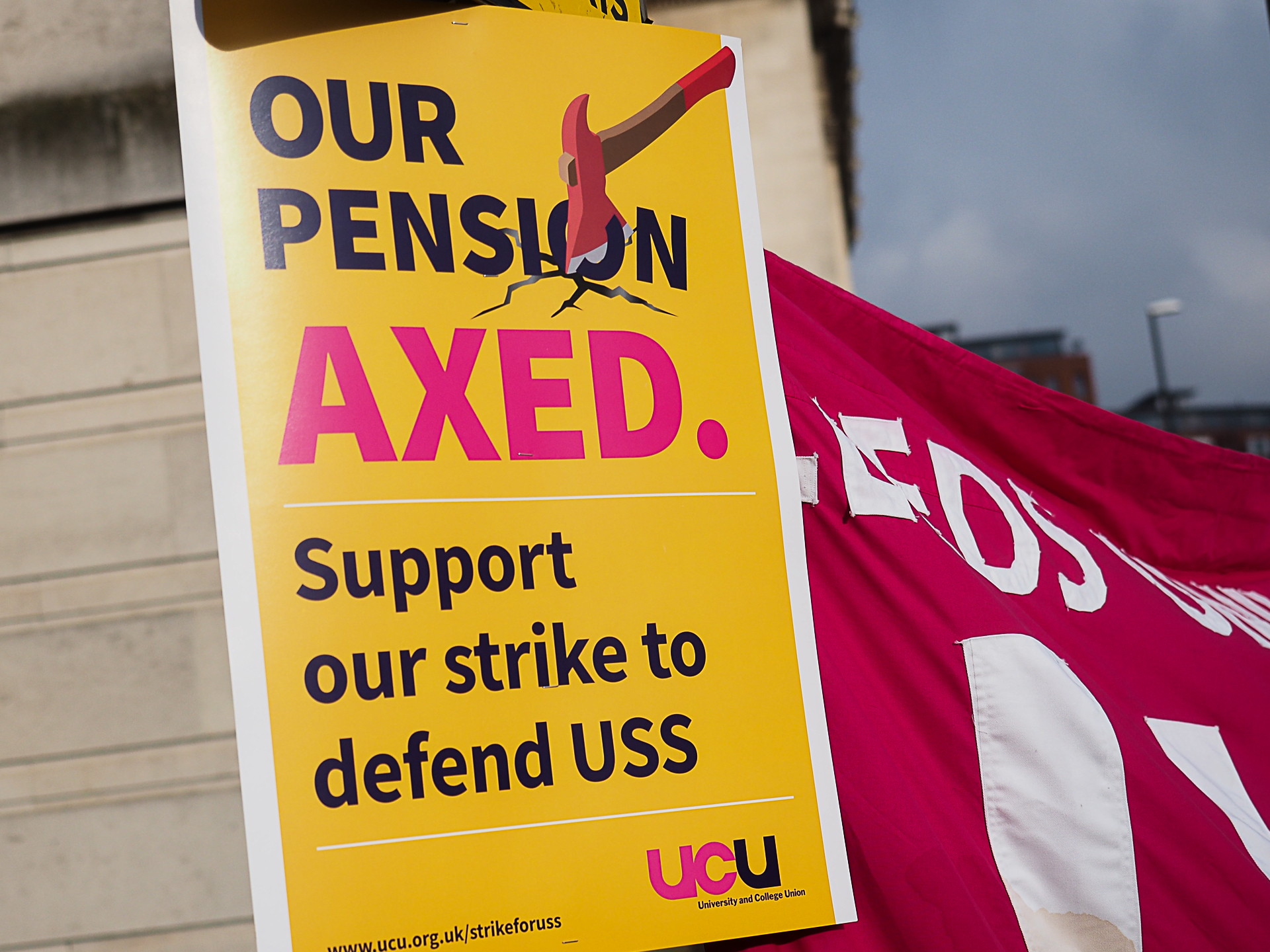Strike action has unfolded across campus this week, with university staff beginning a total of fourteen days of industrial action, spread across four weeks. The University of Leeds is not the only higher education body to be impacted, with 61 universities across the UK experiencing strikes.
This action has been triggered by a dispute between the Universities and College Union, who represent staff, and Universities UK, a body which represents universities. These two groups have been meeting in what is called the Joint Negotiating Committee (JNC) to renegotiate the Universities Superannuation Scheme but have failed to reach agreement.
Despite over 35 meetings of the committee since the start of 2017, talks between the two bodies haven’t been amicably decided upon, and therefore the plans offered by UUK were made decisive by the chair’s casting vote.
The dispute centres upon the introduction of a ‘defined contributions scheme’ for pensions in place of one with a guaranteed retirement income. This scheme would end guaranteed pension benefits, meaning that final pensions would depend on how investments perform rather than contributions. This has been described by Students Union UCL as staff’s financial security depending “entirely on stock market gambling by fund managers”.
Analysis by independent experts First Actuarial has suggested that this switch could leave staff £200,000 worse off over the course of their pension. UUK contend that “this figure relates to an example where someone, not currently a member of the scheme, retires on an annual salary of over £100,000 in today’s terms”, something which they insist is “certainly not a normal career profile”. Moreover, UUK stress that all pension benefits saved up to April 2019 will be unaffected by the changes, and that employers will continue to pay in 18% of salaries into pensions, double the private sector average.

UUK insist that the introduction of the defined contributions scheme is a necessary change, a result of “economic changes which could not have been predicted at the last valuation in 2014.” They state that to maintain the current level of benefits, it would require “overall contributions to increase by approximately £1 billion a year”. With the deficit stood at £7.5 billion at the last valuation, they expect the proposed reform to reduce it to £6.1 billion.
UCU assert, however, that these fears are unfounded, citing that the pension scheme currently receives more money than it spends, and that this surplus is growing each year.
Vicky Blake, UCU branch president, has stated that it is “really hard for us to do this”, telling The Gryphon:
“No-one cares about our students more than we do. But we hope students will understand we can’t simply let universities senior managers take yet more money away from us. University staff work hard, and have endured years of pay restraint and casualised, insecure contracts while watching many at the top in our universities enjoy great rewards.”
Much of the scrutiny surrounding the strikes is focused upon Vice-Chancellors. The reason for this is twofold. Firstly, as noted by Vicky Blake, “many Vice-Chancellors and very senior managers of universities have separate arrangements for their pensions, in cash, so they will be unaffected by the changes to the USS scheme.” Secondly, Vice-Chancellors are members of UUK, so it is believed that they can pressure the group into tabling a deal more favourable to UCU.
This pressure has manifested in numerous different ways. The Vice-Chancellor’s recent Question and Answer event was populated by questions regarding the strike, whilst templates for writing to him requesting action have circulated around the student body.
We are yet to see how students will ultimately side with the strike. Many sympathise with the perspective, whilst others are frustrated at missing a sustained period of teaching. Students at Leeds University, as well as Edinburgh, Bristol, York, Manchester and others, have begun petitions requested compensation for their missed contact hours. Leeds’ petition currently has over 4000 signatures.
 A university spokesperson said:
A university spokesperson said:
“While only a minority of our staff are members of the UCU, we are planning for every eventuality, and our priority is to minimise any disruption to students, including through asking striking staff to reschedule their teaching.
“The pension scheme’s multi-billion-pound deficit needs to be tackled so that we can provide all staff with a scheme which is sustainable, stable and fair – particularly to younger colleagues who would suffer the consequences of short-term fixes. The University’s standard contribution of 18% of salary to the scheme will continue under the proposed reforms, but we could not support directing more money away from our core academic activity – including teaching – into staff pensions. Five members each of UCU and UUK have been at the negotiating table for more than 30 meetings on this issue. The University has not been directly involved in those discussions and we are encouraging staff to take part in the official consultation that starts next month.
It’s too early to assess the impact although many teaching activities went ahead today, but for those students affected, we know this is a real concern and we’re doing everything we can to ensure they get the right support.”
Reece Parker
(Images: Silvia Blanco Tejerina)

